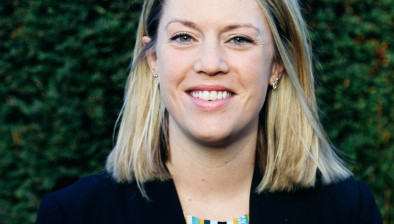Carrington Dean: Scotland braces itself for financial fallout of COVID-19
People across Scotland are starting to focus on managing their long-term finances as the COVID-19 lockdown continues as well as contemplating how they will withstand the economic fallout of the crisis, according to financial advisory firm Carrington Dean.

Stephanie Chapman, chief operating officer at Carrington Dean
This is according to a national survey which showed that keeping up with shopping, energy and rent bills as well as making an income continue to be among the top concerns.
Other key concerns were being able to keep a vehicle on the road, the market impact on investments, a rise in inflation and the cost of living, and the knock-on effect of any financial hardship on family and relatives.
The survey also gave an insight into the emotional and mental health issues being experienced by many people.
Many were concerned about providing for their family and helping relatives who had lost jobs seek employment as well as making ends meet. There were a number of concerns about catching the virus, while one respondent said they feared going out because they were partially sighted, and another feared dying before his wife because she has Alzheimer’s.
The majority of survey participants (almost 50%) said they had dipped into their savings to endure the lockdown situation with more than 15% using credit cards while others had opted for payment breaks, such as for their mortgage, or were using overdraft facilities.
In contrast, just under 40% of respondents said they had not turned to alternative financial sources with many people aged over 65 saying they were managing on their pension.
While just over 50% of respondents didn’t feel they were spending more than normal during the lockdown – compared with almost 30% of those who said they were – the majority felt they were overspending on certain items and commodities This included almost 60% using more energy at home; nearly 50% eating more at home; over 30% making more phone calls; and almost 30% shopping online.
Stephanie Chapman, chief operating officer at Carrington Dean, said: “Against the backdrop of the global crisis, the survey findings indicate that while people across Scotland fully appreciate the constraints placed upon them and are trying to be resilient financially, there are serious concerns as to how long it can be sustained and the repercussions this may have on people and families across the nation.
“As part of our survey, we asked participants if COVID-19 had changed their relationship with money and how they managed it. Just under 40% said that it had, compared with just over 50% saying it had not. I believe we will see a sharp shift in these statistics over the coming weeks.
“While Westminster has announced measures to start coming out of lockdown, the uncertainty that Coronavirus has created in socio-economic terms presents a real, tangible threat to how people will adapt to the yet to be fully realised ‘new norm’ and this crucially includes their health, welfare and wellbeing. It is vital that people who are struggling know they are not alone, and that help is available.
“People from across all walks of life are affected and in order to help navigate them through these uncharted waters, it is critical that as much information as possible is provided to let them know about the wide range of support and options available.
“There are also many misconceptions about being in debt or the prospect of that, which is why it is imperative people are well informed because finding a way through financial difficulties is not as complicated or as overwhelming as some may think.”
- Read all of our articles relating to COVID-19 here.










